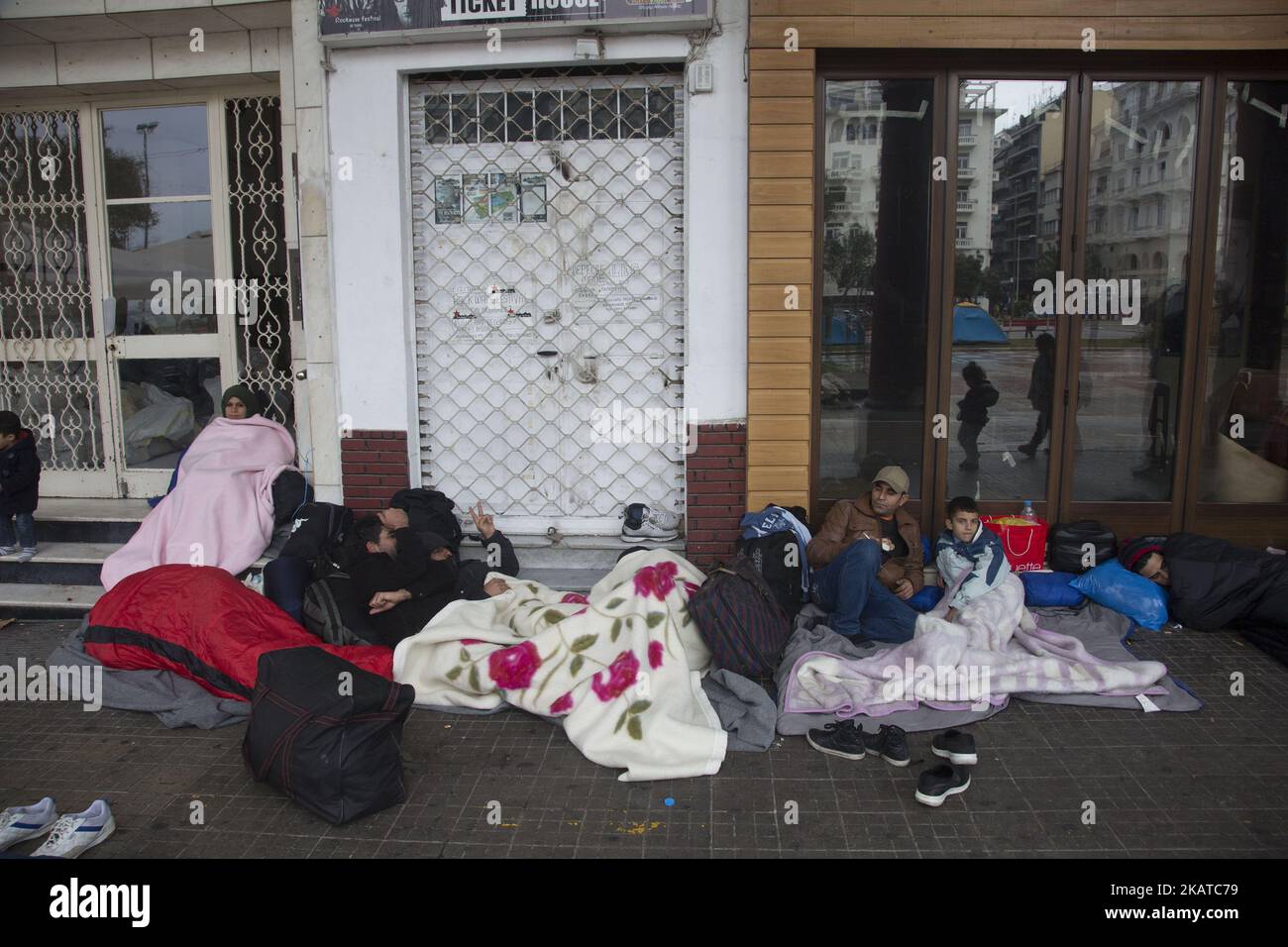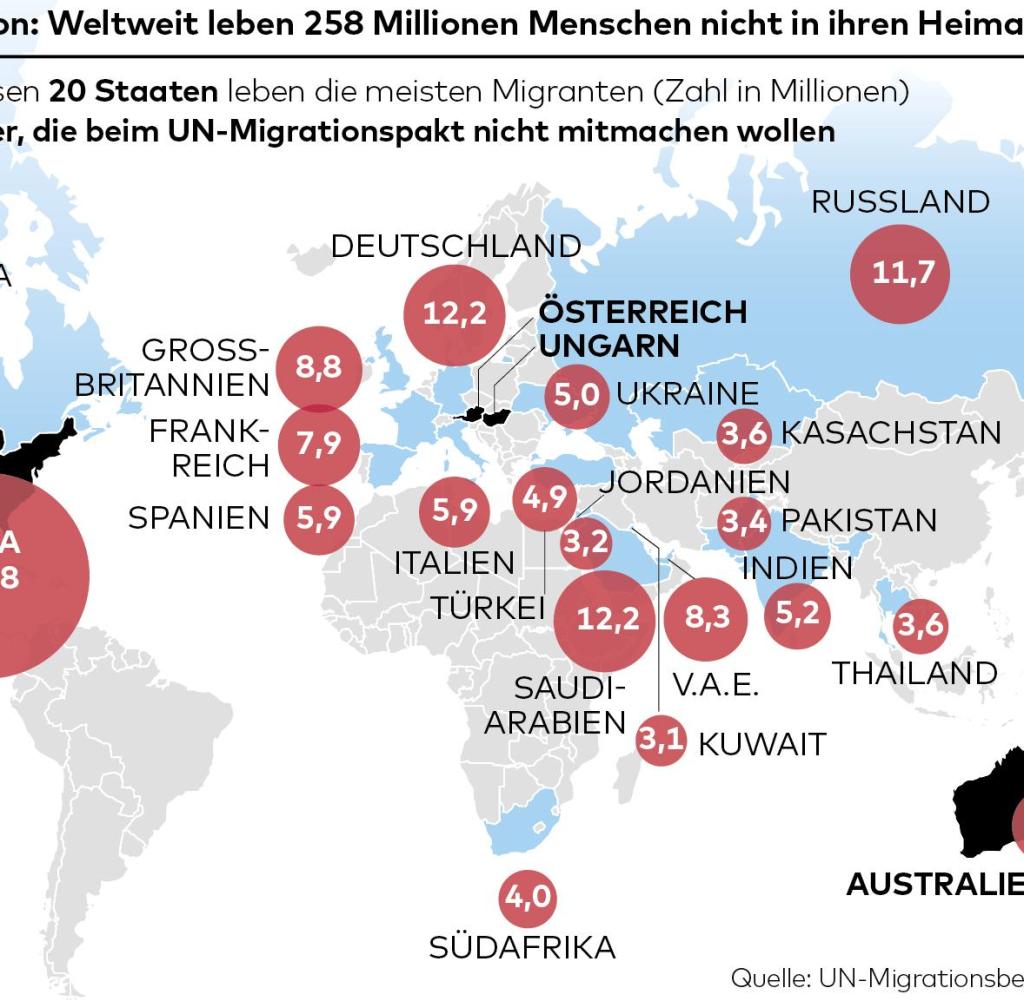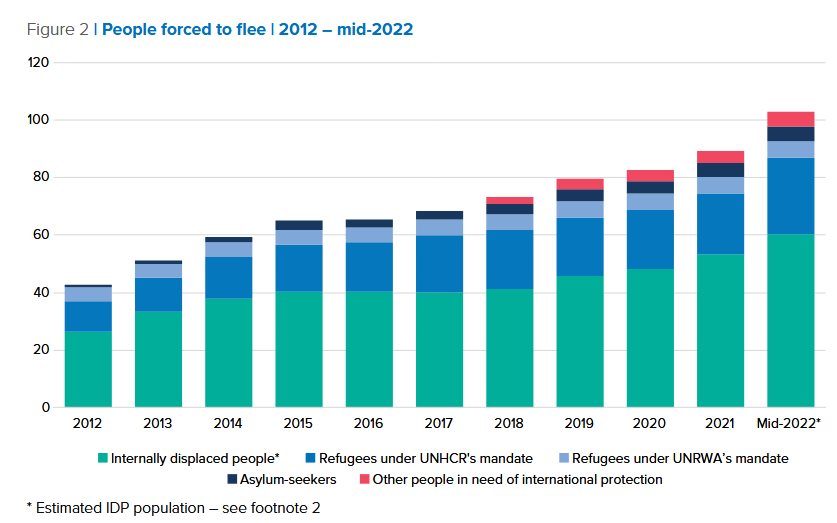Flüchtlinge: Bundesregierung fliegt Migranten aus dem Sudan ein sets the stage for a crucial discussion about the ongoing crisis in Sudan, which has prompted many to seek refuge abroad. As political turmoil and humanitarian challenges escalate, thousands of Sudanese are forced to flee their homeland in search of safety and stability. This situation has led to a significant influx of refugees not only in neighboring countries but also in Europe, particularly in Germany, where the government has stepped up its efforts to accommodate these vulnerable individuals.
The German government’s proactive response underscores its commitment to providing support to those fleeing crisis, including the logistics of transporting migrants from Sudan to Germany. With established legal frameworks guiding the refugee admission process, Germany aims to integrate these newcomers into its society, although challenges remain. The road to recovery is fraught with obstacles, and understanding these dynamics is essential for fostering effective support systems for the migrants.
Overview of the Situation in Sudan: Flüchtlinge: Bundesregierung Fliegt Migranten Aus Dem Sudan Ein

The current political and humanitarian crisis in Sudan has reached alarming levels, primarily due to ongoing conflict and instability following the ousting of former President Omar al-Bashir in 2019. Since then, the power struggle between military and civilian leaders has exacerbated tensions, leading to widespread violence and displacement. The situation has been further complicated by economic challenges and the COVID-19 pandemic, which have intensified the existing vulnerabilities in the region.
Sudan has seen a mass exodus of people fleeing violence, persecution, and dire living conditions. The main driving factors for migration include armed conflicts in various regions, particularly in Darfur and South Kordofan, ethnic tensions, and a dire economic situation that has rendered many unable to meet basic needs. The combination of these factors has led many Sudanese to seek refuge in neighboring countries or even further afield.
Statistics on Refugees from Sudan
The refugee crisis resulting from the turmoil in Sudan is significant, with millions of people displaced both internally and externally. According to the United Nations High Commissioner for Refugees (UNHCR), as of mid-2023, it is estimated that over 1.5 million people have fled Sudan, while around 3 million people have been displaced within the country.
The following points provide a clearer picture of the refugee situation:
- Approximately 900,000 Sudanese refugees are currently residing in Chad, with many living in overcrowded camps.
- Egypt hosts around 500,000 Sudanese refugees, who face challenges related to legal status and access to services.
- South Sudan has seen an influx of nearly 200,000 refugees, many of whom are vulnerable and in need of humanitarian assistance.
- A smaller number of Sudanese have sought asylum in Europe and North America, bringing the total number of Sudanese refugees to about 1.5 million outside the country.
The humanitarian impact of the ongoing conflict and displacement is profound, with a significant portion of the population in need of assistance. The UN reports that nearly 18 million people in Sudan require humanitarian aid, underscoring the urgency of the situation and the need for international support.
“With each passing day, the plight of Sudanese refugees becomes increasingly desperate, highlighting the necessity for urgent intervention and support from the international community.”
German Government’s Response to Sudanese Refugees
The German government’s response to the influx of Sudanese refugees demonstrates a commitment to humanitarian principles and the protection of vulnerable populations. This process encompasses various stages, including decision-making, logistical planning, and adherence to legal frameworks that govern refugee admissions.
The decision-making process involves several key stakeholders, including the federal government, local authorities, and non-governmental organizations (NGOs). The German government assesses the situation on the ground in Sudan through intelligence reports and humanitarian assessments, which inform their strategy for responding to the needs of displaced individuals. High-level discussions among ministers, particularly in the context of Europe’s broader migration policies, shape the final decisions on how many refugees will be admitted and under what conditions.
Logistics of Migrant Flights from Sudan to Germany
Flying migrants from Sudan to Germany involves intricate logistical planning that prioritizes the safety and well-being of the individuals being relocated. This operation includes coordination with international organizations such as the United Nations High Commissioner for Refugees (UNHCR) and collaboration with the Sudanese government to secure necessary permissions.
Key logistical aspects include:
- Flight Arrangements: Chartering flights specifically geared towards transporting refugees, ensuring that they are equipped to handle the unique needs of vulnerable individuals, including medical assistance if necessary.
- Security Protocols: Implementing stringent security measures to ensure the safety of migrants throughout their journey, from departure in Sudan to arrival in Germany.
- Health Assessments: Conducting pre-flight health screenings to address any medical concerns and prevent the spread of infectious diseases.
- Support Services: Providing on-ground support both in Sudan and upon arrival in Germany, including translators, legal advisors, and social workers to assist refugees in their transition.
Legal Frameworks Governing Refugee Admissions in Germany
Germany’s legal framework regarding refugee admissions is primarily established under the Asylum Procedure Act (AsylVfG) and the Basic Law. These regulations define the rights of asylum seekers and set forth the processes for claiming asylum in Germany.
Important elements of the legal frameworks include:
- Asylum Eligibility: Individuals from Sudan must demonstrate a well-founded fear of persecution or serious harm to qualify for protection under international law.
- Resettlement Programs: Germany participates in EU resettlement initiatives that allow for the systematic admission of refugees from conflict zones like Sudan.
- Family Reunification: Refugees are granted the right to seek family reunification, which allows them to bring close family members to Germany, thereby fostering social stability.
- Integration Measures: Legal provisions mandate integration programs that assist refugees in learning the German language and understanding cultural norms to facilitate their integration into society.
“Germany’s approach to refugee admissions is a reflection of its commitment to human rights and international responsibility.”
Challenges Faced by Migrants

Upon their arrival in Germany, Sudanese migrants encounter a variety of challenges that can significantly impact their integration into society. Navigating an unfamiliar environment comes with its own set of hurdles, and these obstacles can be both physical and psychological, making the resettlement process complex.
One of the foremost challenges for Sudanese migrants is the language barrier. Proficiency in German is essential for accessing essential services, communicating with locals, and securing employment. Many Sudanese newcomers may find it difficult to learn the language quickly, which can hinder their ability to interact with the community and build social networks. Furthermore, bureaucratic processes in Germany can be daunting, as migrants must often complete extensive paperwork and navigate legal systems that are foreign to them.
Integration Process for Migrants in German Society, Flüchtlinge: Bundesregierung fliegt Migranten aus dem Sudan ein
The integration process for migrants in Germany is structured yet can be quite challenging. It involves various programs aimed at helping newcomers assimilate into German culture and society. These programs focus on language acquisition, vocational training, and social orientation, which are vital for building a new life.
Key aspects of the integration process include:
- Language Courses: Learning the German language is often the first step in the integration process. Numerous organizations offer free or subsidized language courses tailored for migrants, which are designed to enhance communication skills essential for daily life.
- Employment Support: Access to job training and employment services allows migrants to develop skills that align with the German job market, thereby increasing their chances of securing stable employment.
- Community Engagement: Participation in local community activities and events helps migrants to connect with residents, fostering mutual understanding and easing cultural adjustments.
- Cultural Orientation Programs: These programs provide insights into German laws, customs, and social norms, equipping migrants with the knowledge required to navigate their new environment effectively.
Despite these structured support systems, many Sudanese migrants face difficulties in fully integrating due to stigma, discrimination, or a lack of resources.
Mental Health Issues and Support Systems
Mental health is another critical aspect that affects Sudanese migrants, as many have experienced trauma during their journeys. The stress of displacement, combined with the pressures of adapting to a new culture, can lead to anxiety, depression, and other mental health issues.
Support systems available to migrants often include:
- Counseling Services: Various organizations offer psychological support tailored to the needs of refugees, which can be crucial for those dealing with trauma.
- Community Health Programs: Initiatives aimed at promoting mental wellness within migrant communities provide resources and workshops that focus on mental health awareness.
- Peer Support Groups: Connecting with others who share similar experiences can offer emotional relief and foster a sense of belonging, helping to alleviate feelings of isolation.
Addressing these mental health challenges is essential for facilitating successful integration, and ongoing support from both governmental and non-governmental organizations plays a vital role in this process. These systems aim not only to assist in overcoming immediate challenges but also to promote long-term well-being among Sudanese migrants in Germany.
International Perspectives on Refugee Policies

The refugee crisis, especially involving Sudanese migrants, has prompted a variety of responses from countries around the globe. Understanding how different nations approach refugee policies can provide insight into the effectiveness and the humanitarian considerations at play. This segment will compare Germany’s approach to that of other European countries, Artikel important international laws that protect refugee rights, and discuss the essential role of NGOs in supporting Sudanese refugees both in Germany and internationally.
Comparison of Germany’s Refugee Policies with Other European Countries
Germany’s refugee policies have often been viewed as more welcoming compared to those of several other European nations. This can be attributed to historical precedent and a commitment to human rights. Below are some key points highlighting the differences:
- Asylum Seeking Process: Germany has established a more streamlined asylum process, allowing for a faster resolution of claims. Countries like Hungary and Poland have faced criticism for imposing stricter border controls and lengthy processing times.
- Integration Programs: Germany invests heavily in integration programs, including language classes and vocational training. In contrast, countries such as Italy have struggled to provide adequate resources for integrating migrants into society.
- Public Attitudes: The general public sentiment in Germany has remained largely supportive of refugees, contrasting with nations like Austria, where anti-immigration sentiment has influenced government policies.
International Laws Relating to Refugee Rights and Protections
International laws play a crucial role in safeguarding the rights of refugees. Key treaties and guidelines include:
- 1951 Refugee Convention: This foundational document defines who is a refugee, Artikels their rights, and establishes the legal obligations of states to protect them.
- 1967 Protocol: This expanded the scope of the 1951 Convention by removing geographical and temporal restrictions, making it relevant to contemporary conflicts.
- Non-Refoulement Principle: This core tenet prohibits countries from returning refugees to territories where they may face persecution or serious harm.
The commitment to these laws reflects a global consensus on the importance of protecting vulnerable populations fleeing conflict and persecution.
Role of NGOs in Supporting Sudanese Refugees
Non-Governmental Organizations (NGOs) play a vital role in the support system for Sudanese refugees both within Germany and on an international scale. Their contributions are multifaceted and include:
- Advocacy: NGOs advocate for refugee rights at national and international levels, ensuring that the voices of Sudanese migrants are heard in policy discussions.
- Direct Assistance: Many NGOs provide essential services such as legal aid, healthcare, and housing support, which are crucial for refugees navigating their new environments.
- Community Engagement: Organizations often facilitate community-building activities that help integrate refugees into local cultures, fostering understanding and cooperation between refugees and host communities.
“NGOs are often the frontline responders in addressing the needs of refugees, bridging gaps where governmental support may be lacking.”
The synergy between governmental efforts and NGO initiatives creates a more holistic support network, enhancing the overall experience of Sudanese refugees adjusting to life in Germany and elsewhere.
If you’re looking for the latest updates on the NYT Mini crossword, check out the NYT Mini crossword answers, hints for April 24, 2025 for some helpful tips and solutions. Crossword puzzles are a fun way to challenge your mind, and staying updated can make it even more enjoyable.
In the realm of current affairs, the situation in Ukraine continues to be complex, and recent comments by Donald Trump have sparked discussions. His statement regarding alleged concessions from Vladimir Putin has certainly caught attention and raised eyebrows, highlighting the ongoing tensions in international politics.